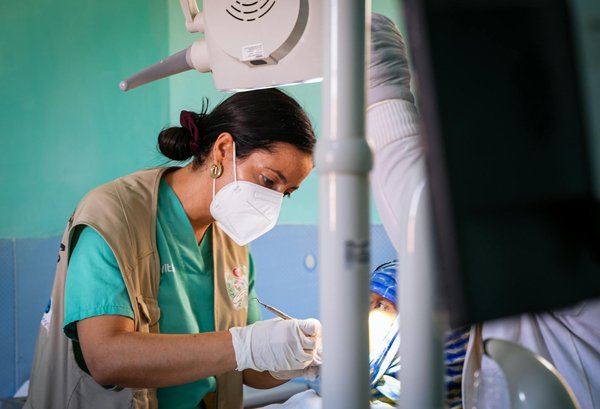Overview of Chronic Respiratory Conditions and Digital Health Innovations
Chronic respiratory conditions, such as asthma and Chronic Obstructive Pulmonary Disease (COPD), affect millions globally. These conditions persist and often require lifelong management, leading to significant healthcare challenges and patient lifestyle impacts. Understanding the prevalence of these conditions is crucial to appreciating the role of digital health innovations in their management.
Digital Health Innovations in Healthcare
Digital health tools have transformed the healthcare landscape. These innovations encompass a range of solutions, from telehealth to mobile applications, that aid in managing chronic diseases. Integration of such technology in healthcare settings enhances the monitoring and management of chronic respiratory conditions.
The impact of technology in chronic disease management lies in its ability to streamline care processes and empower patients with better self-management capabilities. For instance, mobile health apps provide patients the means to track symptoms and medication adherence in real-time, fostering a proactive approach to health management.
Equipping healthcare providers with the right digital tools can foster better patient outcomes while promoting efficiency. As chronic respiratory conditions demand continuous monitoring, digital health solutions offer practical tools for both patients and healthcare professionals, amplifying engagement and improving overall health outcomes.
Types of Digital Health Tools for Respiratory Management
Digital health tools, such as telehealth, mobile health apps, and wearable technology, play a crucial role in the management of chronic respiratory conditions like asthma and COPD.
Telehealth in Chronic Respiratory Care
Telehealth services are integral to respiratory care, enabling patients to consult healthcare professionals remotely. This approach not only reduces the need for frequent in-person visits but also provides prompt medical advice, crucial during exacerbations in conditions such as asthma and COPD.
Mobile Health Apps for Asthma and COPD
Mobile health apps serve as powerful allies in managing asthma and COPD. They allow users to track symptoms, log medication adherence, and receive timely reminders to take medication. This information can be conveniently shared with healthcare professionals, enhancing personalised treatment plans.
Wearable Technology and Respiratory Monitoring
Wearable technology offers proactive respiratory monitoring. Devices like smart inhalers and respiratory sensors provide real-time data on a patient’s respiratory status. They alert patients and healthcare providers to any critical changes, ensuring rapid response and better management of long-term respiratory health. Wearables support continuous monitoring, fostering improved patient engagement and adherence to treatment regimes.
Benefits of Digital Health Innovations in Chronic Respiratory Management
When considering the impact of digital health tools on chronic respiratory management, several benefits stand out. Notably, these innovations foster improved patient self-management and engagement. By enabling patients to monitor their health proactively, the technology cultivates a more involved approach to managing conditions like asthma and COPD.
Furthermore, the implementation of digital health tools has revolutionised communication between healthcare providers and patients. With real-time data sharing, healthcare professionals offer more precise, personalised guidance, enhancing treatment efficiency. This interplay not only improves understanding but also ensures adherence to prescribed management plans.
A remarkable advancement in chronic disease management is the evidence of improved health outcomes thanks to remote monitoring and sophisticated data analysis. By leveraging data from digital tools, providers can swiftly identify and address potential health issues before they escalate.
For individuals with chronic respiratory conditions, digital health solutions are instrumental in promoting continuous and effective care. By integrating these technologies into daily life, patients are empowered to take charge of their health, resulting in more successful management of chronic respiratory diseases. Ultimately, the blend of technology with healthcare nurtures a healthier, more connected patient community.
Successful Case Studies of Digital Health Innovations
Digital health innovations in chronic respiratory care have yielded a wealth of case studies and success stories that highlight best practices and outcomes. By examining these examples, we can better understand the tangible benefits of technology integration.
Implementation of Digital Tools in Clinical Settings
The use of digital tools like telehealth services and mobile health apps in clinical settings demonstrates significant improvements in managing chronic respiratory conditions. Remote monitoring allows healthcare providers to track patient data more effectively, leading to timely interventions. Real-world implementations have shown that these tools support efficient patient follow-ups, reduce hospital visits, and improve adherence to treatment plans.
Patient Testimonials on Managing Conditions
Patients have shared testimonials highlighting the positive impact of digital health tools on their ability to manage conditions such as asthma and COPD. For many, tracking symptoms and medication adherence through apps has transformed their daily management routines. Patients report increased confidence, better understanding of their health, and an improved sense of control.
Lessons Learned from Successful Programs
From these success stories, several lessons surface. One key takeaway is the importance of user-friendly interfaces and ongoing patient education to maximize the benefits of digital health tools. Furthermore, collaborative efforts between technology providers and healthcare teams are crucial in tailoring solutions to individual patient needs, leading to enhanced patient outcomes.
Strategies for Integrating Digital Health Innovations into Daily Management
Incorporating digital health tools into daily management of chronic respiratory conditions like asthma and COPD requires strategic thinking. Adopting the right integration strategies ensures these tools are used effectively, enhancing patient’s daily life.
To begin, selecting the most appropriate tools is crucial. Consider each patient’s needs and lifestyle when choosing between telehealth services, mobile health apps, or wearable technology. These solutions should align with individual health goals and provide user-friendly interfaces for seamless integration.
Developing a comprehensive daily management plan can aid in the habit formation necessary for effective use of digital tools. This might involve setting regular reminders for tracking symptoms or adhering to medication schedules through mobile apps, or scheduling periodic remote consultations via telehealth.
Additionally, the importance of personalized care cannot be overstated. Tailoring the implementation of these digital innovations to fit personal circumstances maximizes their benefit. Healthcare providers should consider individual preferences when recommending digital health solutions, ensuring the technology is both supportive and engaging for patients.
By thoughtfully integrating these innovations into their routines, patients can enhance self-management and engagement, leading to better health outcomes and improved quality of life.
